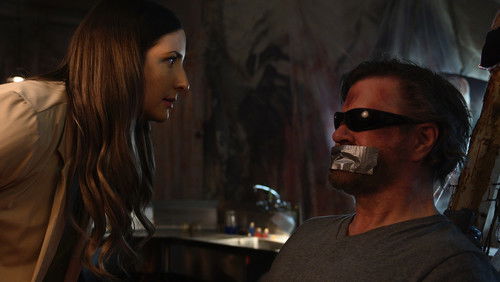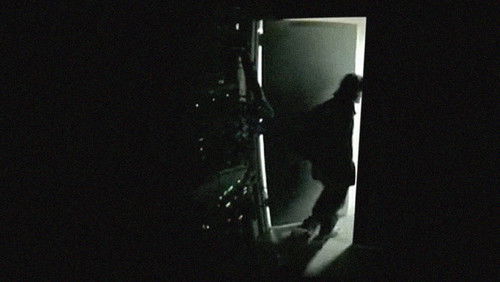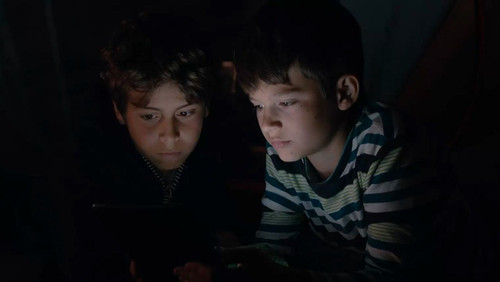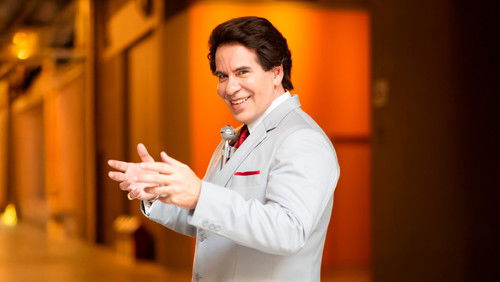War Game (2024)
66KWar Game (2024). 1h 34m
“At its best, War Game (2024) is a somewhat slow and adequately staged situation room documentary that treats the possibility of another January 6th-like unrest with due seriousness. It focuses on a strategy game played by real (former) public officials, designed to be as realistic as possible. The goal: to thwart a potential, highly-organized takeover of the Capitol on January 6th, 2025. However, it can feel somewhat u0026quot;churched upu0026quot; at times, particularly towards the end. At its worst, the film comes across as a thinly disguised and unfair attack on American institutions, released at a critical time for the United States. War Game had the potential to be a provocative and insightful film, but instead, it appears to mislead well-meaning, civic-minded progressives and scare them into believing that the next civil war is just months away.u003cbr/u003eu003cbr/u003eOn January 6th, 2021, a group of around 2,500 highly agitated civilians stormed the U. S. Capitol Building with small arms, melee weapons, and bear spray. January 6th was a violent and unprecedented assault on the Capitol, driven by a mix of political radicalism, misinformation, and impulsive dissatisfaction with the results of a democratic election. The participants included a diverse group, ranging from individuals caught up in the moment to organized extremists with more deliberate intentions. However, it was not a coup in the traditional sense of a military takeover or a fully coordinated effort to seize control of the government. Nevertheless, it was a significant breach of democratic norms. This event is a bellwether for how extremely unusual and damaged our politics are becoming. Yet, I also roll my eyes at my classmates who think January 6th was the worst, most violent event in American politics. No, it wasnu0026#39;t. (By the way, did you know that, in 1983, the U. S. Senate was actually bombed by a group of radical feminists? Political violence is not all that unprecedented in America and can be perpetrated by either side.)u003cbr/u003eu003cbr/u003eThat is the first trick that War Game has up its sleeve: it takes for granted that January 6th was a horribly violent, traumatic experience for the United States, and that perhaps our very democracy was moments away from crumbling entirely. The film caters its message to a certain NPR-listening, New York Times-reading, hybrid-driving, metropolitan demographic of Americans, including the reading public, academics, and urban professionals. If one researches the people responsible for making the film, this checks out.u003cbr/u003eu003cbr/u003eThe film was co-directed by James Moss, a California-based filmmaker and UC Berkeley graduate, known for his 2021 political puff piece u0026quot;Mayor Pete.u0026quot; War Game was produced by Submarine Entertainment, a company that has been involved in numerous radically progressive films focusing on race and gender activism, such as Sugarcane and Queendom. I mention these not necessarily as a critique, but to highlight that, given the filmu0026#39;s origins, some bias in War Game is certainly to be expected.u003cbr/u003eu003cbr/u003eThe second trick is a subtle one: War Game wants you to believe it is an objective, nonpartisan, and almost scientific thought experiment designed to save democracy. While the cast may impress the aspirationally aware (yet busy and generally tuned-out) citizen, do not be fooled-War Game has assembled a coterie of C-list public officials who are, by the way, overwhelmingly affiliated with the Democratic Party. This includes names such as former Democratic Governor Steve Bullock, former Democratic Senator Heidi Heitkamp, and former Democratic Senator Doug Jones. The rest, you can assume, are retired National Guard officers, cabinet generals, and a mix of mid-ranking department officials. These warriors for democracy larp inside a dark, crowded room with only a table and a couple TV screens. Youu0026#39;re supposed to find this hyper-realistic and fascinating, but itu0026#39;s really just old-hat and boring.u003cbr/u003eu003cbr/u003eTo break up this monotony, footage and still images of the January 6th rioters occasionally appear on-screen. The directors also include staged news reports following the simulated attack on the Capitol, which is the focus of this experiment. Sometimes, fake text messages and Discord chats are pasted on-screen to dryly illustrate how fifth-generation warfare carries out. Newcomers to contemporary politics and online discourse may find it elucidating, but anyone whou0026#39;s used Twitter (sorry, I meant X) before will likely find it sedating.u003cbr/u003eu003cbr/u003eHere is the final and most unforgivable trick: War Game has the brash, undeserved temerity to end on a patriotic and inspirational note after casting aspersions on the U. S. military for the whole movie. The team that helped assemble this u0026quot;gameu0026quot; for the officials to play are known as the Vet Voice foundation. It consists, mostly, of Janessa Goldbeck, a Marine Corps veteran, and Kristofer Goldsmith, an Army veteran.u003cbr/u003eu003cbr/u003eHereu0026#39;s the rub. The film spends a significant amount of time exploring Janessa and Kristoferu0026#39;s motives, portraying them as reasonable, progressive individuals who served in the military but were affected by trauma and partisanship. It does this in a cynical attempt to manipulate (and patronize, honestly) the filmu0026#39;s progressive audience that probably doesnu0026#39;t know better. The film goes out of its way to highlight Janessau0026#39;s lesbian identity and her experience as one of the first gay women in the Marine Corps. On-screen, she is depicted holding an assault rifle as if she were a veritable war hero.u003cbr/u003eu003cbr/u003eThe film deliberately obscures their roles in the military. Big surprise-neither Janessa or Kristofer served in the infantry. Janessa was an officer who spent most of her time stationed in the U. S. and briefly in Europe. Kristofer, while an enlisted service member who did deploy to Iraq, was a forward observer, focusing primarily on information and reporting tasks. Despite being portrayed as a war-hardened counterinsurgency expert, this depiction does not seem entirely accurate.u003cbr/u003eu003cbr/u003eBecause these two are veterans, the film feels entitled to criticize the military for having a large population of right-leaning individuals. It treats these Soldiers with skepticism and suspicion, as if they are u0026quot;deplorablesu0026quot; just waiting to show their true colors and possibly defect to the alt-right extremist underworld that this movie seems to invent to justify its own existence. By the end of the film, the audience was terrified, and I had the feeling they viewed the military in a more negative light than before the film started. Kristofer, at the end, suggested that the u0026quot;gameu0026quot; was necessary because a takeover could really happen, claiming the military has been radicalized to some extent and that weu0026#39;re all in danger. The people sitting next to me seemed utterly convinced. I was appalled.u003cbr/u003eu003cbr/u003eWar Game pretends to be helpful, but it is borderline unpatriotic, and it pats itself on the back way too much. Donu0026#39;t be swayed by this manufactured crisis-avoid getting caught up in its false alarm.”









